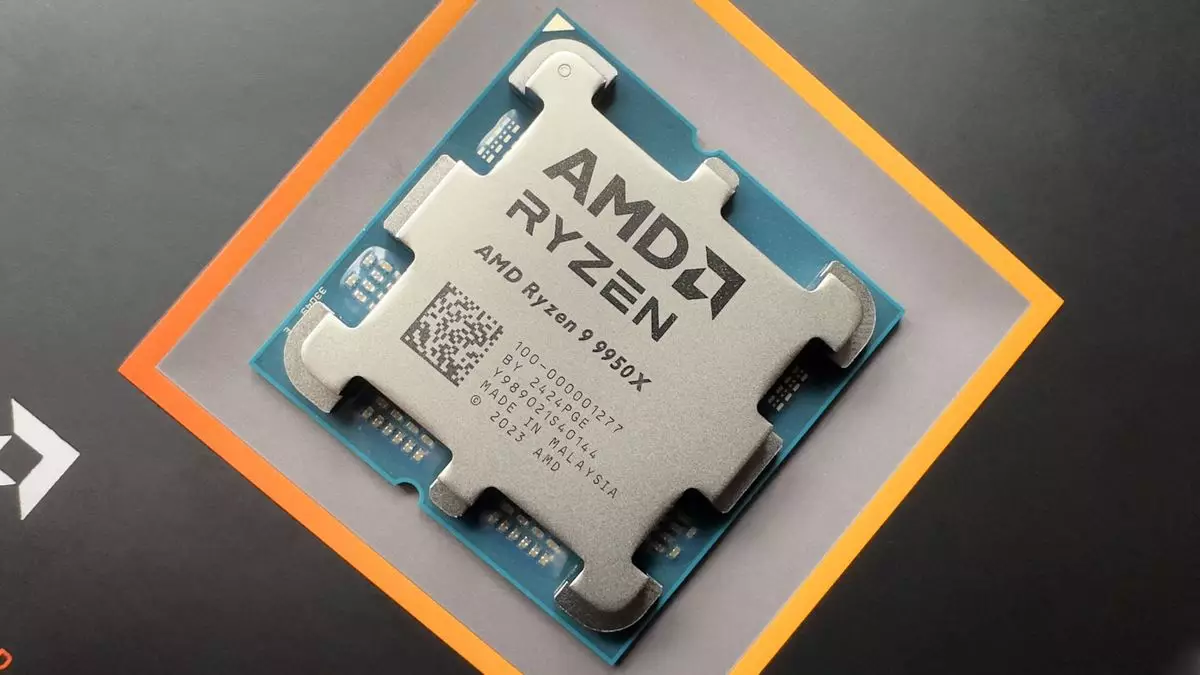AMD’s latest 9000-series CPUs have left many consumers underwhelmed, with performance only marginally better than the previous 7000-series chips but coming with a higher price tag. The company recently provided an explanation for the disparity between its original projections for Zen 5 gaming performance and the reality that reviewers found. Initially, AMD claimed a “9% average generational uplift in 1080p gaming versus Ryzen 7000 series” and a 6% improvement over the competition’s best chips. However, after reevaluating its testing methodologies, AMD adjusted its claims to now show “parity in gaming” with Intel and a modest “5-8% improvement in gaming over the Ryzen 7000 series.”
One of the reasons cited by AMD for the discrepancy in initial gaming performance tests was the selection of games in the test suite and the configurations used during testing. AMD also mentioned an unusual variable in its testing methodology: running tests in Windows Admin mode. This decision raised eyebrows among industry observers as the use of a hidden Administrator account with elevated privileges could lead to inaccurate performance results that do not reflect real-world user scenarios.
The decision to conduct tests exclusively in Windows Admin mode sparked confusion and skepticism among tech enthusiasts. Testing under a hidden Administrator account, which deviates significantly from how the vast majority of users operate their systems, raised concerns about the validity of the results obtained. Speculations surfaced regarding potential motives behind this testing approach, ranging from performance inflation to inadvertent oversight on AMD’s part.
Critics pointed out that running processes under a hidden Windows Admin account could potentially bypass certain system security measures, skewing the performance numbers in favor of AMD’s CPUs. Moreover, the implications of running tests without the VBS overhead associated with the default Windows behavior called into question the accuracy of AMD’s claims regarding its testing conditions. The need for aligning testing methodologies with typical user scenarios became evident in light of these revelations.
In response to the criticisms and concerns raised, AMD announced that an optimized AMD-specific branch prediction code would be made available in Windows 11, version 24H2. This update aims to enhance the performance of AMD’s CPUs by addressing the branch prediction discrepancies observed in the initial testing. While the performance boost resulting from this optimization is projected to be modest, every incremental improvement counts, especially considering the lackluster advancements offered by the 9000-series chips.
The controversies surrounding AMD’s Ryzen 9000-series CPUs underscore the importance of transparent and realistic testing practices in the tech industry. By acknowledging the limitations of its initial testing methodologies and taking steps to rectify the discrepancies, AMD has demonstrated a commitment to providing accurate performance assessments for its products. Moving forward, both consumers and reviewers alike will be scrutinizing AMD’s testing approaches more closely to ensure that future performance claims reflect real-world usage scenarios accurately.

